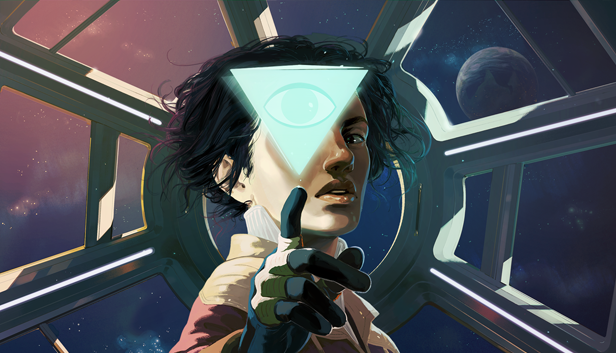You’re flying. Floating above the ground, turning, spinning, and moving across the room. You lose control, find yourself upside down and begin to laugh. It’s silly. Absurd, honestly. Yet, it’s blissful and wonderful all the same. You are flying. Well, floating, but close enough right?
This is one of the earliest moments that occurs in Tacoma, Fullbright’s newest game. Entering the titular space station for the first time, all gravity vanishes and you suddenly find yourself almost at once lifted up in the air. It is an incredible feeling, that captures a tiny, tiny, sliver of the magical feeling of being weightless. It is a moment that depicts floating above the earth and a loss of gravity better than any game I’ve played. It is also a perfect microcosm of the highs and lows of Tacoma. An incredible, promising, and beautiful moment giving way to a by the books, more quiet, less exciting adventure.
It’s not that Tacoma is bad, it’s never for a second bad. It’s just that after the early, intrigue filled, promising opening section the game quickly succumbs to relying on science-fiction clichés and loses much of the steam it wished to build. By the time you are reaching the finale of Tacoma you just can’t help but shrug your shoulders at what’s happening around you. It’s pretty, features some great characters, and poses some fascinating and important questions, yet none of that can really deliver against the backdrop of a cliché-ridden and timid story that is missing the spark of fun, warmth, and empathy that could have capitulated it to greatness.
This is particularly a disappointment when considering the characters that make up the world of Tacoma. Adventure games shine brightest from their cast of characters and Tacoma is no exception. From Sarah, the head medic onboard with a troubled history with the company in charge of the space station, to E.V. the captain dealing with immense grief and the responsibilities of leadership, to Natali and Roberta a married couple whose beautifully depicted relationship provides much of the heart, levity, and spark of Tacoma, the game is filled with thoughtful, introspective, and human characters. Which makes the fact that the game rushes along at a pace that never quite allows you to enjoy these characters as much as you wish such a let down.
There are simply too many, everyone feels spread just a bit too thin. To say nothing of the other characters who I didn’t mention above and who get even less to do and just detract further from the stars. Then there comes the troubling nature of the Tacoma’s AI, ODIN, the real reason you’re on board the space station. It feels like Fullbright wanted ODIN to be a real star of the proceedings in a move clearly inspired by the likes of HAL from 2001 A Space Odyssey, a film, by the way, that it feels like Tacoma is constantly chasing after in it’s own manner, much to its detriment. The problem, as with its human characters, is that their isn’t enough time or investment in ODIN. By the time the final act starts up and things really begin to build towards the game’s much promised finale, ODIN is still someone we know very little about and that we’ve come nowhere close to forming an opinion on yet. Even Tacoma’s botanist, Andrew, a bitterly wasted character who contributes little to the game and who has no apparent personality other than to constantly be cowardly is more fleshed out than ODIN, someone who is integral to the plot.
What drives ODIN? What are his reasons for doing what he does? These and many other questions are largely brushed aside via a quick dialogue exchange between him and another character and never dwelled much deeper on.
Tacoma promises and even teases all these big, grand, and epic questions about the meaning and nature of being alive, of the power and consequences of thought, life, and grief. It asks and re-asks all these questions throughout the game, continues to go along as if it has some grand thing to say about it all, as if it aspires to the great sci-fi ranks of stories that staked out a stand on the human condition and then at the crucial hour it rests its hat on generalities and the stale used answers of the past. It acts as if it’s the cleverest kid in the room when in reality it doesn’t even know what the real question is.
Closing Comments.
Tacoma is a disappointingly good game. That is the best way I can describe it. It’s not bad, is never really bad, it is on the whole a totally good game. It’s pretty, with nice music, and featuring truly promising characters of depth and empathy. Yet, it so utterly fails to capture the magic and spirit of something special or altogether remarkable. It’s spread too thin, has too many cooks in the kitchen, and asks far too many big questions that it never has the slightest interest in adding any insight too. Tacoma is good, it’s solid, it’s nice looking, you will enjoy your time playing and have some fun along the way, but it never for one second is extraordinary, never for one second feels like this is a story that Fullbright had to tell, instead it’s a nice good game that won’t be long remembered.
Tacoma was reviewed on [PC] with a digital copy purchased by the reviewer.








